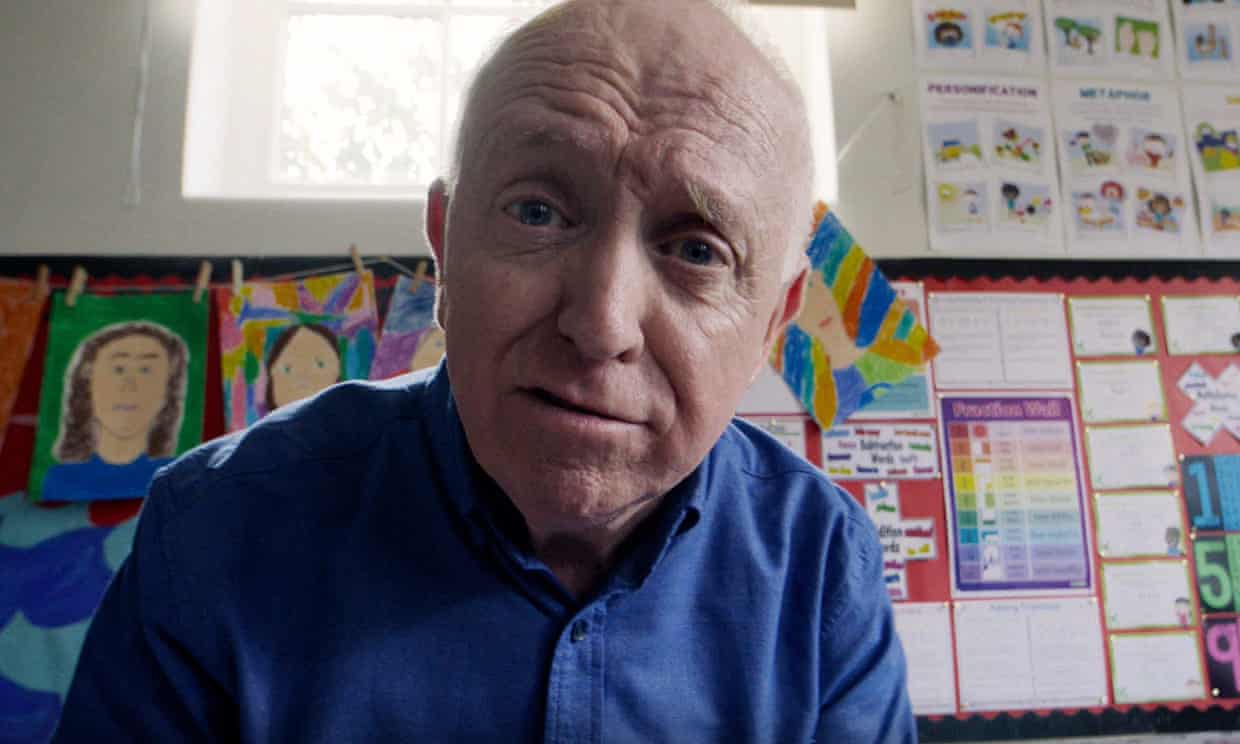
Lockdown culture
Groomed review – horrifyingly honest study of abuser and abused
Available online
Patrick Sandford makes an astonishing dramatisation of childhood abuse and its consequences over a lifetime in this eloquent film
by Arifa AkbarIn 2016, Patrick Sandford performed an autobiographical play about paedophilic abuse. Last year, it was reimagined as a film – shot inside a primary school with Sandford as its solitary lead – that is now available online from Soho theatre.
The still-taboo subject of abuse has begun to be tackled in recent years with powerful works such as Hanya Yanagihara’s Booker-shortlisted novel A Little Life and Steppenwolf’s acclaimed theatre production Downstate. What is different in Sandford’s work is that he dramatises the inner states of both the abused and abuser. The former study is far more emotionally penetrating. We meet Paddy as a nine-year-old when he is first molested by a teacher and we follow him into adulthood. Sandford flits inside the head of the teacher to present his side and back again over the course of this lean, hypnotic 50-minute production.
The duality holds us with its horror and honesty. This is storytelling of a high order. Directed by Nancy Meckler, Sandford’s monologue has an extraordinary incremental power and eloquence.
He re-enacts the first instances of abuse with little movement and barely any props except for a pen and chair. He invites us to imagine what happened, holding the chair in lieu of the child while the pen becomes the teacher: “It’s the 1960s. I am a teacher,” he says, sitting behind a desk and as he speaks, the camera tilts downwards, placing us at Paddy’s height.
Small-scale, poetic observation from Paddy’s perspective stands in for the graphic details of abuse, so Paddy describes the grain of the wood that looks “like treasure maps” on a table when he is pushed to the floor and the acne marks on the teacher’s face when he is drawn close. A miniature child’s theatre set becomes a prop through which to speak about the nature of truth, lies and theatrical pretence. It is a fitting metaphor for Sandford, who is the former artistic director of Nuffield Theatre Southampton, but it feels a little strained.
He brings in other more elaborate metaphors: the life story of Adolphe Sax, who invented the saxophone and overcame all manner of hardships, and the remarkable tale of Hiroo Onoda, a Japanese army intelligence office in the second world war who carried on guarding his post for 29 years after peace was declared. This latter analogy becomes gut-wrenchingly apt, however tenuous it first seems. The soldier remains in his trench however many times he is told that it is safe to leave it, just as the abused adult stays entrenched in childhood trauma.
The play also articulates, delicately but devastatingly, Paddy’s lifetime’s damage, from guilty feelings of complicity to a profound self-loathing: “The bad done to me becomes the bad in me,” he says.
The teacher’s voice is interwoven through Paddy’s: “I made you top of the class. Can’t you see I loved you? You were so sexy.” He is not judged in this act of ventriloquism; Sandford also makes clear that other adults saw what was happening, but turned a blind eye.
It is a double character study that makes some discomforting connections between the abuser and abused, and the to-and-fro between them makes it even more uncomfortable in the viewer’s placing of attachment and sympathy, adding to the psychological complexity of the drama. But ultimately it is Sandford’s astonishing script and delivery that makes this a chilling but unmissable study of abuse and survival.